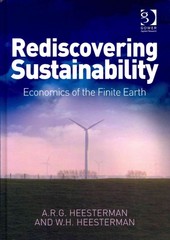Question
It may be aware that the New Zealand government has tasked the government agency, The Commerce Commission, to review the market structure in the supermarket
It may be aware that the New Zealand government has tasked the government agency, The Commerce Commission, to review the market structure in the supermarket industry in NZ. This review, which started in 2021 is still ongoing, with the expectation of a final report in 2022. An interim report was provided by the Commission, signalling serious concerns over high market power in the sector in NZ. A media release in July 2021 referred to the interim report. 1 Definite policy regulations were not confirmed by the Commission, but a review, some options, including the facilitation of the entry of a third supermarket chain were being considered.
This is not a unique case, where market power in an industry has emerged, followed by government review and action. Many international government policy responses have involved using regulation, and other policy tools to address or reduce the problem. In fact, supermarkets in a number of countries have come to show excess market power in the groceries industry. Notably, there has been strong and increased competition watch by governments in recent years. In fact, according to a New York times article (6 January 2015), "A Brazilian court imposed the longest jail sentence for price-fixing, ordering a Brazilian executive found guilty of price-fixing between two airlines to spend more than 10 years in prison and pay a $156 million fine that year". In essay address the following considerations.
It is asked to draw a diagram of your choice to support your answer in Part A. When appropriate, you can also support your answers of economic analysis by further adding evidence from other studies or countries:
1 Media Report, Commerce commission (21 July 2021): https://comcom.govt.nz/news-and- media/media-releases/2021/commission-releases-draft-report-on-competition-in-the-retail-grocery- sector
Part A: Market Power causes and consequences:
Considering the supermarket industry in New Zealand, why can it be classified as a duopoly market structure and not monopolistic competition; and what economic forces in the groceries industry can cause this form of market structure outcome? What are the main economic concerns, in relation to strong market power in the duopoly supermarket industry conditions in NZ? In particular, explain using economic analysis and your knowledge based on pricing, and game theory(Nash equilibrium and prisoner's dilemma), how and why price competition and other efficiency or equity aspects of the market may be affected, during extended periods when two firms have a duopoly situation. Draw a diagram to support answer.
Part B: Regulation Policy Options:
Commerce Commission's interim report has suggested some potential regulation policy options. What are some viable and effective policy options? Which of policy options are expected to be most effective and why? Does it recommend one of the main policies being considered by the Commerce Commission "to facilitate the entry of a third supermarket chain in this market"? Analyse using economic reasoning (e.g. Monopoly, Oligopoly and Competitive Market) and explain why, or why not. Also consider and discuss whether and why the government may have hesitations in taking up this particular policy recommendation, based on advice by some economists?
Step by Step Solution
There are 3 Steps involved in it
Step: 1

Get Instant Access to Expert-Tailored Solutions
See step-by-step solutions with expert insights and AI powered tools for academic success
Step: 2

Step: 3

Ace Your Homework with AI
Get the answers you need in no time with our AI-driven, step-by-step assistance
Get Started


